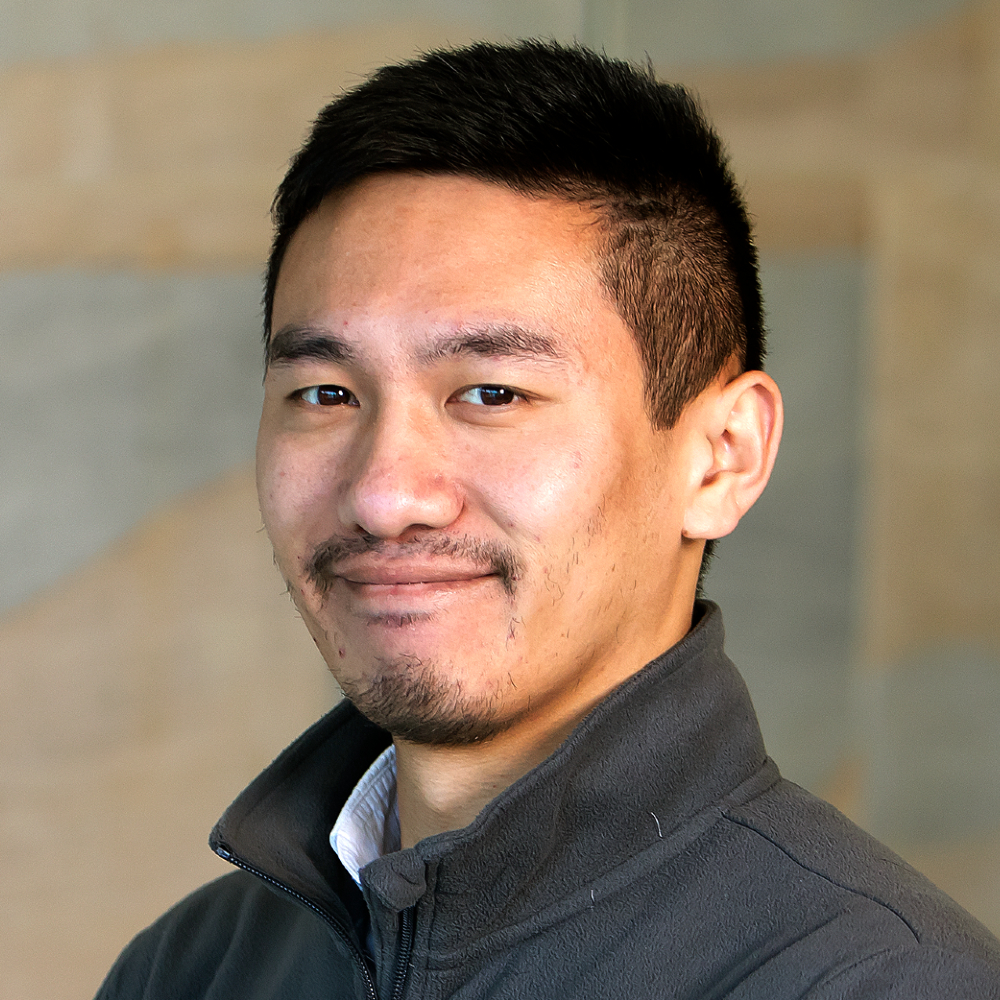Dr Henry Chung

-
Email
henry.chung@essex.ac.uk -
Telephone
+44 (0) 1206 873721
-
Location
ESA.3.32, Colchester Campus
Profile
Biography
Henry's background is in Sport & Exercise Sciences, where he completed his BSc (2012 - 2015) and MSc (2015 - 2016) at Anglia Ruskin University (ARU) in Cambridge in Exercise Physiology and training on health and fitness. Following this, Henry worked at Addenbrookes hospital’s Institute of Metabolic Science (IMS), in Epidemiology for the University of Cambridge (UoC) (2016 - 2018). In this role Henry aided the management of projects and dealing with robotics, laboratory work, and external companies, to support the completion of large-scale research projects for the Medical Research Council (MRC) and the University of Cambridge. He left the MRC Epidemiology Unit to pursue a doctorate, where he was awarded the Vice Chancellor Scholarship fund. Now successfully completed and awarded a Ph.D in Exercise Physiology and Genetics (2018 - 2021). During this time, Henry achieved the Higher Education Academy (HEA) award and became a mentor, supervisor, tutor, and Associate Lecturer in Exercise Physiology and Nutrition for the School of Psychology and Sports Science, at Anglia Ruskin University. Henry has a passion for sports and exercise. During his time at ARU he was the 1st team Captain for the Men's Basketball team playing in both Bucs div 2, national league div 2. He was also a part of the high-performance Men's Judo team, competing nationally and for BUCS, where he won Gold in the London Open. In his spare time, he competes for a 5-a-side football league at Goal Soccer Centre and has partaken in competitive PC and Console E-Sport / Gaming.
Qualifications
-
PhD Anglia Ruskin University,
-
MSc Anglia Ruskin University,
-
BSc Anglia Ruskin University,
Appointments
University of Essex
-
Lecturer (R), School of Sport, Rehabilitation, and Exercise Sciences (SRES), University of Essex (10/1/2022 - present)
Other academic
-
Associate Lecturer in Sports Nutrition and Exercise Physiology, Cambridge Centre for Sport and Exercise Sciences, Anglia Ruskin University (2/3/2020 - 2/11/2020)
-
PAL Leader for Research Methods, Cambridge Centre for Sport and Exercise Sciences, Anglia Ruskin University (1/1/2020 - 2/3/2020)
-
Laboratory Research Technician, MRC Epidemiology Unit - Addenbrookes hospital, University of Cambridge (9/1/2017 - 22/8/2018)
-
Research Assistant, School of Psychology and Sport Science, Anglia Ruskin University (1/7/2014 - 1/9/2014)
Research and professional activities
Research interests
The effects of E-sport and gaming on health
E-sport and gaming has had a massive increase in attention and participation. Most serious gamers spend hours per-day playing on computers and console. What implications does this have on key health markers?
Current research
Cross-acclimation from heat stress to hypoxia: a systematic review and exploratory meta-analysis.
This systematic review and exploratory meta-analysis is the first to present a comprehensive overview of the current literature investigating the effect of HA on the physiological, perceptual and performance outcome measures during rest, submaximal and maximal exercise in subsequent hypoxic conditions.
Can allele-specific genes explain the inter-individual differences within muscular strength gains?
Genes have shown to be associated with many physiological and psychological factors and pathways. Recent research has established this with endurance training in a UK-based population. However, in strength training is still yet to be explored in a great enough detail.
Green tea supplementation on fat burning and genetics
Working with a research team lead by Dr Justin Roberts. I have been asked to do the genetic and statistical analysis for this funded project based in ARU Cambridge in 60 participants.
Conferences and presentations
The PhD journey and transition into working in academia
Invited presentation, Keynote presentation, Anglia Ruskin University FSE Research Conference 2023, Anglia Ruskin University, Chelmsford, United Kingdom, 14/7/2023
BASES Student Conference 2023
Invited presentation, BASES Student Conference 2023, Anglia Ruskin University, Cambridge, United Kingdom, 24/4/2023
SYMPOSIUM IN SPORTS SCIENCE &PERFORMANCE
Invited presentation, 5th Edition SYMPOSIUM IN SPORTS SCIENCE &PERFORMANCE, University of Suffolk, Ipswich, United Kingdom, 23/3/2023
Active Urbanism: Metabolic rate and oxygen consumption comparison between encouraging walking on steppingstones versus conventional pavements.
18th inter-nation conference on urban health ICUH, Valencia, Spain, 10/8/2022
Teaching and supervision
Current teaching responsibilities
-
Principles of Nutrition and Metabolism (SE103)
-
Anatomy and Physiology for Sport (SE111)
-
Professional Skills 2 (SE201)
-
Training Techniques and Assessment of Athletes (SE208)
-
Research Project (SE309)
-
Research Project (SE318)
-
Further Research Methods in Sport, Exercise and Health (SE738)
-
Research Project (SE740)
-
Research Project (SE777)
-
Biochemistry and Metabolism (SE778)
-
Applied Temporal Sport and Exercise Science (SE301)
Publications
Publications (1)
Chung, HC., Keiller, DR., Roberts, JD. and Gordon, DA., (2021). Do exercise-associated genes explain phenotypic variance in the three components of fitness? A Systematic review & Meta-analysis
Journal articles (16)
Gowers, C., McManus, C., Jones, B., Chung, H. and Waterworth, S., Prevalence of low energy availability and burnout syndrome in female athletes. Journal of Sports Medicine and Physical Fitness
Willmott, AGB., Chung, HC., Roberts, JD. and Maxwell, NS., (2024). The reliability and validity of the Affinity Altitude hypoxic generators in acute and chronic conditions. Sports Engineering. 27 (1)
Chung, HC., Keiller, DR., Waterworth, SP., McManus, CJ., Roberts, JD. and Gordon, DA., (2024). Genotypic Variations Associated with Changes in Body Mass in Response to Endurance Training. Research Quarterly for Exercise and Sport, 1-11
Willmott, AGB., Diment, AG., Chung, HC., James, CA., Maxwell, NS., Roberts, JD. and Gibson, OR., (2024). Cross-adaptation from heat stress to hypoxia: A systematic review and exploratory meta-analysis.. Journal of Thermal Biology. 120, 103793-103793
Swain, P., James, E., Laws, JM., Strongman, C., Haw, S., Barry, G., Chung, HC. and Gordon, D., (2023). COVID-19: self-reported reductions in physical activity and increases in sedentary behaviour during the first national lockdown in the United Kingdom. Sport Sciences for Health. 19 (1), 139-146
Chung, H., Waterworth, S., Shaw, I., McManus, C. and Shaw, B., (2023). Genetics and exercise health in strength training: A brief overview and commentary. Global Research Journal. 2 (2)
Chung, HC., Keiller, DR., Swain, PM., Chapman, SL., Roberts, JD. and Gordon, DA., (2023). Responsiveness to endurance training can be partly explained by the number of favorable single nucleotide polymorphisms an individual possesses. PLoS One. 18 (7), e0288996-e0288996
Waterworth, S., Kerr, C., McManus, C., Chung, H., Shaw, B., Shaw, I. and Sandercock, G., (2023). Four-year longitudinal associations of physical activity, waist circumference, and blood pressure in UK adolescents.. Pediatric Research. 95 (3), 736-743
Strongman, C., Swain, P., Chung, H., Merzbach, V. and Gordon, D., (2022). COVID-19: Social Distancing and Physical Activity in United Kingdom Residents With Visual Impairments. Journal of Visual Impairment and Blindness. 116 (6), 806-816
Boldina, A., Chung, HC., Santos, AMC. and Steemers, K., (2022). Active urbanism: heart rate and oxygen consumption comparison when walking on imitation steppingstones versus a plain surface. Cities and Health. 7 (3), 398-415
Chapman, S., Chung, H., Trott, M., Smith, L. and Roberts, J., (2021). Nutritional supplements to reduce muscle damage and enhance athlete recovery: What is the physiological evidence?. Physiology News (122)
Chung, HC., Keiller, DR., Roberts, JD. and Gordon, DA., (2021). Do exercise-associated genes explain phenotypic variance in the three components of fitness? a systematic review & meta-analysis.. PLoS One. 16 (10), e0249501-e0249501
Chapman, S., Chung, HC., Rawcliffe, AJ., Izard, R., Smith, L. and Roberts, JD., (2021). Does Protein Supplementation Support Adaptations to Arduous Concurrent Exercise Training? A Systematic Review and Meta-Analysis with Military Based Applications.. Nutrients. 13 (5), 1416-1416
Gordon, D., Swain, P., Keiller, D., Merzbach, V., Gernigon, M. and Chung, H., (2020). Quantifying the effects of four weeks of low-volume high-intensity sprint interval training on V̇O2max through assessment of hemodynamics. The Journal of Sports Medicine and Physical Fitness. 60 (1), 53-61
Gordon, DA., Merzbach, V., Scruton, A., Roberts, J. and Chung, H., (2017). The Effects Of 4-weeks Hiit And Continuous Based Training On The Incidence Of Plateau At Vo2max And The Anaerobic Capacity. Medicine & Science in Sports & Exercise. 49 (5S), 998-998
MCDONALD, K., TSUKADA, M. and Chung, H., (2016). Understanding the female judoka’s “coach–athlete” relationship: a British perspective. Archives of Budo. 12 (1)
Thesis dissertation (1)
Chung, H., (2022). Genotypes and phenotypes: implications of exercise on the inter-individual differences in biological responses
Grants and funding
2024
The validation of a novel epigenetic clock using a salivatory DNA methylation test within humans.
University of Essex (BBSRC IAA)
Validation of saliva DNA test kits for personalised exercise and nutritional advice based on genotypes: A feasibility study
University of Essex (BBSRC IAA)

